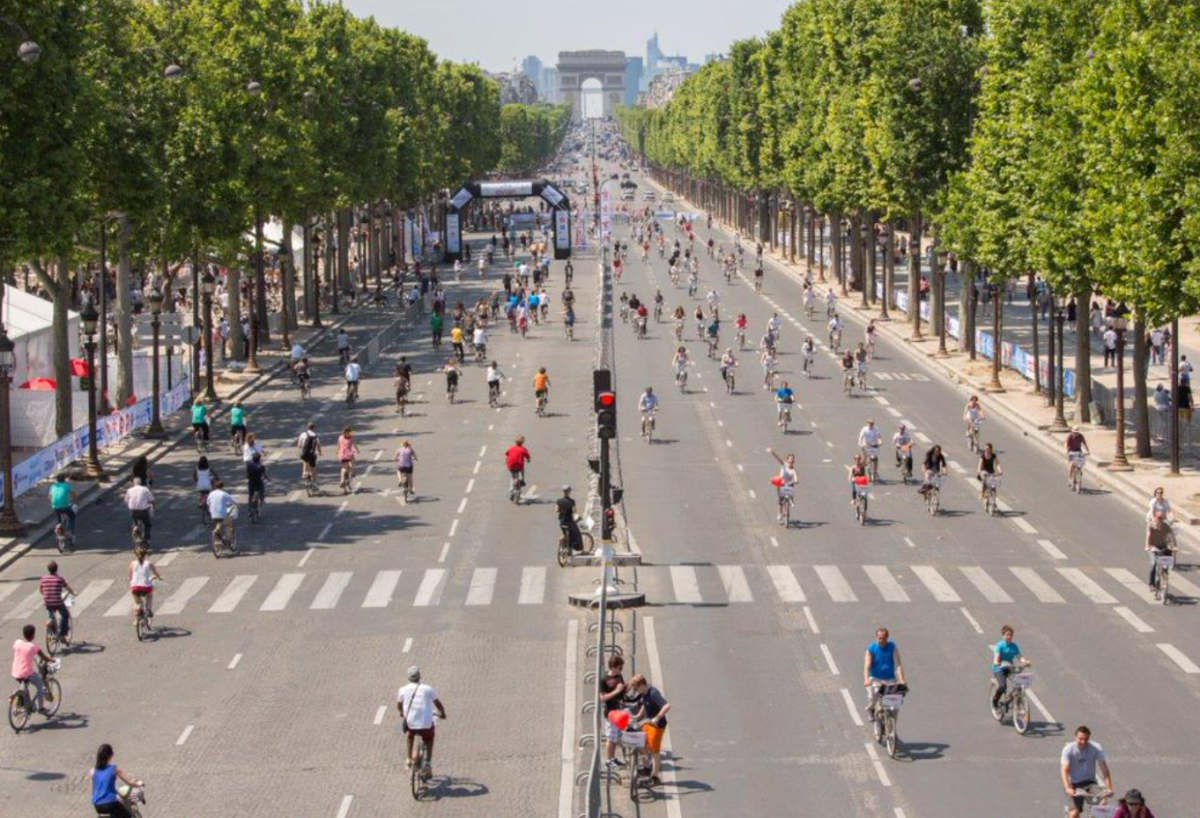Driving from Wellesley to Boston or Cambridge is often an expedition, especially during rush hours. Nearing the city, the traffic continues to escalate until it comes to a standstill. On my last trip, I glanced at my watch and noticed it had taken over an hour to travel 16 miles, noting that had gone at a more standard pace, we would not have wasted nearly as much gasoline. Of course, gas-guzzling traffic is hardly exclusive to Boston.
There is, however, one exception. Those who found themselves in Paris on Sept. 27 were greeted by an unusual sight: streets clear of cars. Indeed, it was the city’s first car-free day, automobiles were not allowed in about one-third of the city. Cars elsewhere were forced to slow down to 12 mph.
Aside from many enjoyable street festivals happening that day, I do wonder if the participating citizens have learned anything about environmental issues from this, becoming inspired to change their habits, or if this event is merely a symbolic gesture. Furthermore, can Boston acquire something from this experiment?
When interviewed by USA Today, Paris resident Kim Le Minh, 37, said “I see (the car-free day) as a communication campaign to make people reflect in general about the environment and pollution. But I doubt they will be persuaded to use their car less. I don’t think they will change their habits in the short term.” Many other opinions echoed Minh’s thoughts.
The general consensus being that, yes, one day without traffic is a pleasant change, but would inspire few to give up their usual four-wheeled mode of transport. Indeed, car-free day does appear to be primarily a symbolic gesture ahead of the city’s hosting of the United Nations’ World Climate Conference this November, but can it lead to reform? Certainly, if people were responsive and awareness was raised then it would lead to positive change. However, one day out of 365 likely will not make much of a difference in people’s attitudes, despite the huge dip it made in nitrogen dioxide levels and noise pollution, by 40 percent and 50 percent, respectively. In the end, Paris is one of the world’s most smog-ridden cities and it is likely to stay that way for some time.
More events like this are needed if we are going to start a movement to protect our planet. Nothing will get done on a large-scale, such as new fossil-fuel limiting or energy cutting laws, if the citizens seem unconcerned. Looking at examples from the past it seems obvious: women got the right to vote because of a decade long fight. Even the United States became an independent nation because of a huge effort by our forefathers. In short, it is going to take the involvement and dedication of many different people to fight climate change.
Therefore, the need for awareness of these issues has never been greater. In the last 30 years, the world’s glaciers have melted about 40 percent; shoud this continues, human habitats will be submerged by water. States, such as Florida, where Governor Rick Scott has banned talk of climate change in any government setting, are estimated to be subaquatic within in the 100 years. Cities like San Francisco and New York will follow soon after. That is not to say that there is no progress being made. Just last week it was reported that the Environmental Protection Agency set new, tougher standards aimed at reducing smog.
Of course, U.S. congress has been fighting about it for months and it is not clear whether this plan will be passed. However, we have already experienced many negative effects of this climate change, such as the polar vortex of 2014, and, more recently, the flooding in the Carolinas. Undoubtedly, this issue deserves attention and action.
The weather is getting much more chaotic, a phenomenon scientists agree is the result of human activities. Thus, if not now, when do we make a positive change for the sake of our planet and all the beings that will come to live on it?
Aside from arguing about smog control regulations, members of Congress also recently blocked President Obama’s planned contributions to the United Nations’ Green Climate Fund. Thus, it is clear that in this world of climate change deniers, we need to be the ones who inspire our leaders to make a difference, but first we must be aware of the issues.
Events like Paris’ car-free day or Chicago’s bike-to-work day, events that are beginning to pop up in many cities, are, while not much, a step in the right direction towards raising consciousness and, therefore, we should all follow suit.
Photo courtesy of Forbes




